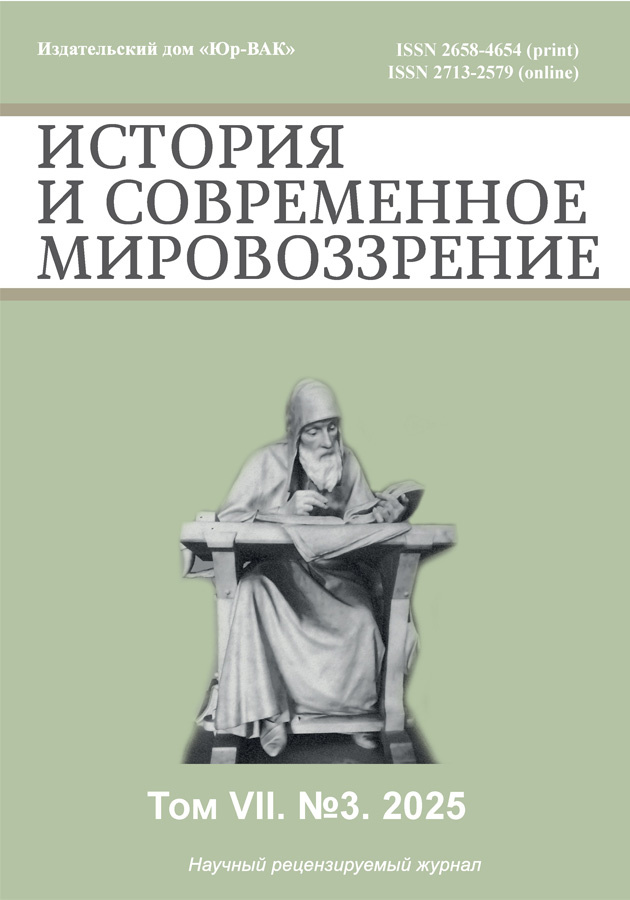Political, economic and cultural cooperation between Russia and DPRK (2022–2025)
- 作者: Ponka T.I.1, Komelev A.I.1
-
隶属关系:
- Peoples’ Friendship University of Russia named after Patrice Lumumba
- 期: 卷 7, 编号 3 (2025)
- 页面: 145-150
- 栏目: DEBATING ISSUES OF GENERAL HISTORY AND INTERNATIONAL RELATIONS
- URL: https://journals.eco-vector.com/2658-4654/article/view/695644
- DOI: https://doi.org/10.33693/2658-4654-2025-7-3-145-150
- EDN: https://elibrary.ru/odtfiv
- ID: 695644
如何引用文章
详细
The article examines the challenges of the building allied relations and developing political, economic and cultural cooperation between the Russian Federation and the DPRK. It analyses the transformation of bilateral relations under the influence of external geopolitical events. The purpose of the research is to identify the key features of Russia-DPRK cooperation against the backdrop of global political changes in the period 2022–2025. This is essential for determining the main direction of Russia’s contemporary foreign policy and identifying its priorities. The result of the research is that Russia-DPRK cooperation experienced significant grownth between 2022 and 2025. The article highlights various areas of bilateral engagement that serve as the foundation for this result. In the context of increasing tension between Russian and the collective West, military cooperation has also emerged alongside political, economic and cultural ties. A major geopolitical event that initiated a new stage in strengthening Russian-DPRK relations was the special military operation started by Russia in February 2022. The research results suggest that after February 2022, profound changes took place across multiple spheres of bilateral cooperation, most notably in the political and economic domains.
全文:
作者简介
Tatiana Ponka
Peoples’ Friendship University of Russia named after Patrice Lumumba
编辑信件的主要联系方式.
Email: ponka-ti@rudn.ru
ORCID iD: 0000-0003-4944-115X
SPIN 代码: 5858-3578
Cand. Sci. (Hist.), Associate Professor
俄罗斯联邦, MoscowAnton Komelev
Peoples’ Friendship University of Russia named after Patrice Lumumba
Email: komelev1997@mail.ru
SPIN 代码: 5211-5950
postgraduate student
俄罗斯联邦, Moscow参考
- Baranova Yu.V., Stetsun M.S., Khramenko E.A. Prospects for Trade and Economic Cooperation between Russia and the DPRK in Modern Geopolitical Realities. Ethnosociety and Interethnic Culture. 2024. No. 5 (191). Pp. 101–110. (in Rus.).
- Leshakov P.S., Solovyov A.V. Warmly, but Painfully. Russia in Global Politics. 2023. Pp. 184–196. (in Rus.).
- Zakharova L.V. Relations between Russia and the DPRK in the Context of the Coronavirus Pandemic (2020–2021). Bulletin of the Irkutsk State University. Series: Political Science. Religious Studies. 2021(38). Pp. 46–50. (in Rus.).
- Zakharova L.V. Prospects for Economic Relations between Russia and the DPRK in the New Geopolitical Conditions. MGIMO Bulletin. 2023. No. 4 (64). Pp. 19–20. (in Rus.).
- Naumenko A.S., Saltanov S.D. Strategic Defense Partnership between Russia, China, and North Korea. Bulletin of the Peoples' Friendship University of Russia. Series: Political Science. 2024. Pp. 107–120. (in Rus.).
- Trigubenko M.E., Nguyen K.H. Russia Returns to the DPRK: Trade and Economic Cooperation Yesterday and Today. Potential for Development Opportunities. Economics and Management. No. 5 (163). 2019. Pp. 28–33. (in Rus.).
- Ho O.G. The Strategy of the New Northern Policy and its Limiting Factors. Bulletin of the St. Petersburg University. International Relations. 2020. Pp. 354–373. (in Rus.).
- Kang K. and Kugler J. Beyond deterrence: Uncertain stability in the nuclear era // Conflict Management and Peace Science. 2023. Pp. 655–674.
补充文件









